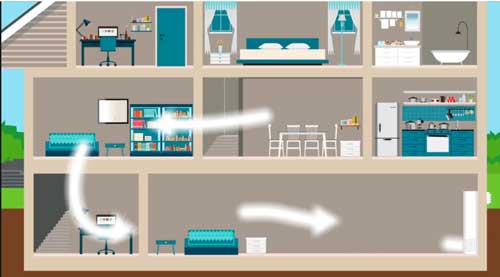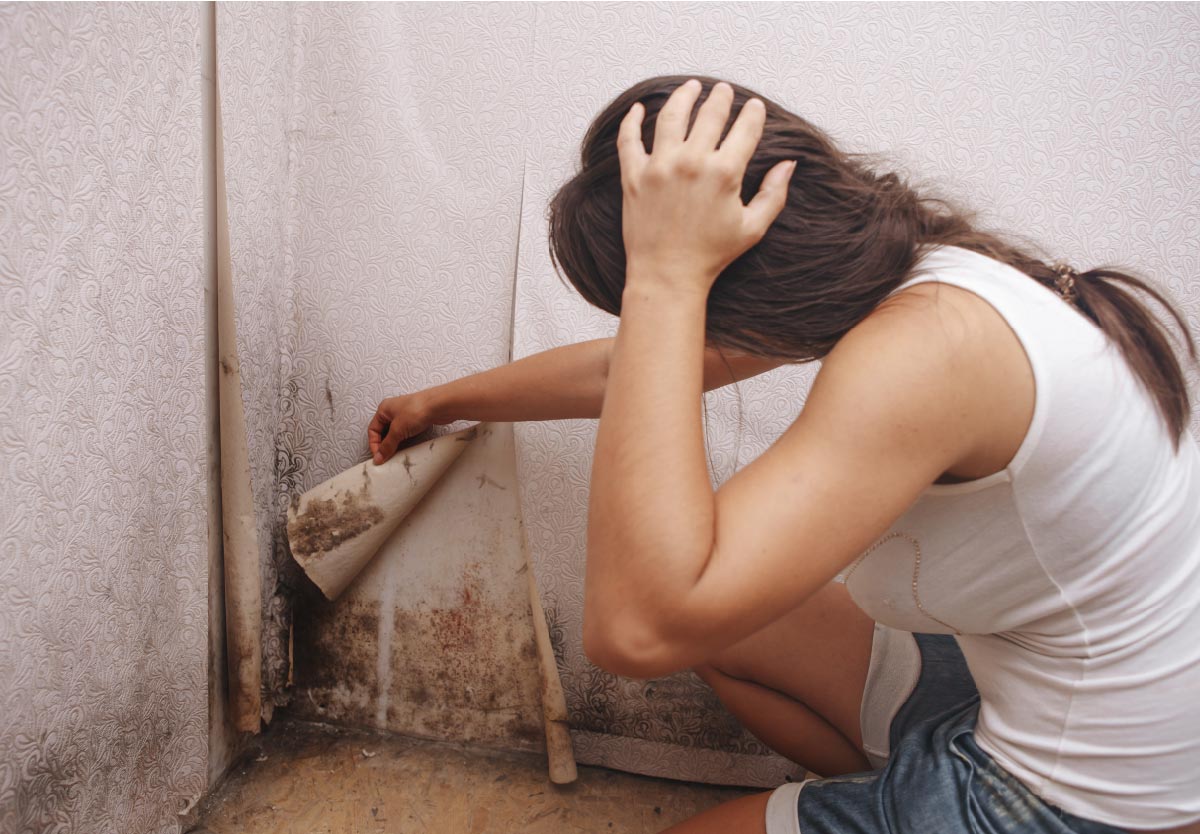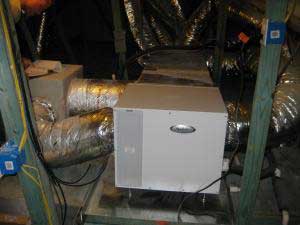You cannot dictate the weather outside, but that doesn’t mean you have to tolerate hot and humid conditions inside your home. Introducing a whole-house dehumidifier in your home could be the ultimate solution to your humidity issues, especially if the problem is widespread in all the rooms.
But just like all other appliances, whole-house dehumidifiers have their pros and cons:
Whole House Dehumidifiers’ Pros
Saves Energy
The human body regulates its temperature through sweating. As the sweat evaporates from your skin, you get to lose the unwanted heat. Unfortunately, sweat doesn’t evaporate efficiently when there’s high humidity in your home.
You will, therefore, need to use an air conditioner regularly to control your body temperature in a highly humid room, which consumes a lot of electric energy. In addition to your air conditioner, you may consider installing a whole-house dehumidifier. This appliance removes the unwanted moisture from your entire home while consuming negligible power. By extracting the excess humidity from your indoor space, this moisture extractor helps lower the temperature in your indoor air, allowing your body to cool down without using the AC.
In this case, a whole-house dehumidifier enables your AC to regulate your indoor temperature ultimately reduce electricity usage.
In Short: Using whole house dehumidifier and air conditioner together will cool the home and keep humidity at recommended level. This is a best practice as it conserves energy and reduces electricity bill.
Uniform Quality Air
Whole-house dehumidifiers are integrated with your central air conditioning system. A fan within the dehumidifier draws in warm, humid air and passes it over cold coils. This process condenses the moisture within the air, and the condensate is discharged via a drain-pipe.
The unit subsequently disperses dry, cool air throughout your home via a return duct. Shortly put, a whole-house dehumidifier lives up to its name; it boasts the capacity to effectively lower the moisture levels in every space of your house.

Enhances Your Home’s Value
The installation costs for a whole-house dehumidifier are usually very high, but it’s a worthwhile investment that increases your home value. Even if you don’t intend to sell your house at the moment, increasing the value of your home can benefit you in the future.
For instance, you could get a better-paying job requiring you to pack and relocate. Also, your home could prove to be too spacious if your children graduate and leave. You could also outgrow your current possessions and decide to declutter and downsize your home.
Shortly put, the future might be having different plans for you. Therefore, anticipating the possibility of your home sale and adding value to it will ensure that you don’t lose money when you decide to sell it. What better way to enhance your home’s value than installing a whole-house dehumidifier?
Hassle-Free Enhancement of Comfort
When humidity levels in your home are too high, the air feels hot, heavy, and muggy, reducing your family’s comfort significantly. Besides, excess indoor moisture triggers mold growth and dust mite infestation, contributing significantly to your discomfort. The aftermath of excess indoor moisture is even worse for asthma and allergy sufferers.
Luckily, you can easily combat indoor humidity by introducing a dehumidifier into your house. While portable dehumidifiers do a great job extracting the surplus moisture, you will have to purchase a number of them to dehumidify all the rooms in your home. Alternatively, you might have to move a single unit from your bedroom to your living room, bathroom, closet, and kitchen, which sounds like a lot of work.
This is where a whole-house dehumidifier comes in handy; it maintains suitable humidity in all the rooms comprising your home simultaneously without much input from your side. You can, therefore, sit back to enjoy damp-free air devoid of dust mites and mold spores, among other airborne allergens.

Unobtrusive Operation & Enhanced Safety
Your home should be a sanctuary for your entire family, including your kids and pets. For instance, your living area should be free from any obstacles that might increase tripping risks. Objects placed in your living room or bedroom, including dehumidifiers, significantly increase the chances of falls and injuries.
Unlike portable moisture extractors that are placed within sight and could potentially overcrowd your space, whole-house dehumidifiers are tucked away safely out of view. This device will maintain comfortable RH levels in your home while operating inconspicuously and without getting in your way.
Note: Keeping a portable dehumidifier will dehumidify only a specific area while a whole house dehumidifier can control the humidity of whole house with out taking any space in your house or being a safety hazard.
Whole House Dehumidifiers’ Cons
Expensive to Install
The cost of acquisition is a huge drawback against whole-house dehumidifiers. When purchasing this unit, be ready to spend a small fortune. The cost of installation might also require you to break the bank.
You’re probably contemplating conducting the installation yourself. Unfortunately, this option isn’t recommended unless you have the required expertise. Whole-house dehumidifiers are directly connected to your home’s duct work.
A slight error during installation can cause severe destruction to your home’s duct work. Instead of saving installation money, you might end up losing a money on duct work repairs.

To Consider: Even though a whole house dehumidifier is expensive to install but you need to realize that it is going to save a lot of energy bill over the years.
Portability Issues
Staying with a whole-house dehumidifier and enjoying its benefits might have you thinking about moving with it into your new home when relocating. Unfortunately, if you have to move to another house, your unit will remain in your old home.
On the one hand, the unit adds value to the house and allows you to collect a handsome amount of sale money. But on the flip side, you will have to invest in another whole house dehumidifier and endure the much-dreaded purchase and installation costs once more.
Energy Costs
Depending on the size of your home, whole-house dehumidifiers could prove costlier to run than portable moisture extractors. If your home is small, installing a whole-house dehumidifier will only cost you unnecessarily in the form of energy bills.
The energy bill is also dependent on how you’re running your whole house dehumidifier. If you run the unit all year round, you can expect high energy bills. Therefore, you should only operate your unit occasionally, especially in winter when your indoor air is hot and humid.
Tip: Don’t forget that running a whole-house dehumidifier saves you on air conditioning energy bills.
The Bottom Line
During winter, the weather outside your home is cold and dry. This compels a lot of people to use heaters in a bid to stay warm. Heaters discharge moisture into your indoor environment, making your indoor air hot and humid. Besides, many home activities also contribute to a rise in indoor humidity, including breathing, taking a hot shower, air-drying clothes, and cooking. House plants also contribute significantly to dampness in your home.
Sealing of homes further aggravates indoor moisture during winter, which homeowners must do to protect their families from the freezing temperatures. Thus, the hot and humid air accumulates indoors with nowhere to escape.
Excess moisture is undesirable for several reasons. Firstly, these conditions promote mold growth and the accompanying unpleasant odors. Secondly, damp air hinders the evaporation of sweat from your body, leaving you feeling hot and sticky. Besides, excess moisture could compromise the structural integrity of your home and destroy fabrics and wooden fittings.
This explains why dehumidifiers are gaining popularity in modern homes. Moisture extractors, whether whole-house units or portable units, serve the all-important purpose of keeping your home’s occupants safe from humidity-related issues, including airborne contaminants, respiratory problems, and discomfort.
When it comes to choosing between a whole-house dehumidifier and a standalone moisture extractor, you must consider the pros and cons of each unit. A whole-house unit will supplement your AC’s work and help to reduce the running expenses. It will also get you uniform distribution of clean air throughout your home. Besides, using a whole-house unit is stress-free, and the unit remains hidden, out of your way.
Some of the downsides of installing a whole-house unit include the associated purchase and installation costs, portability issues, and excessive energy bills, especially if your home isn’t big enough.
